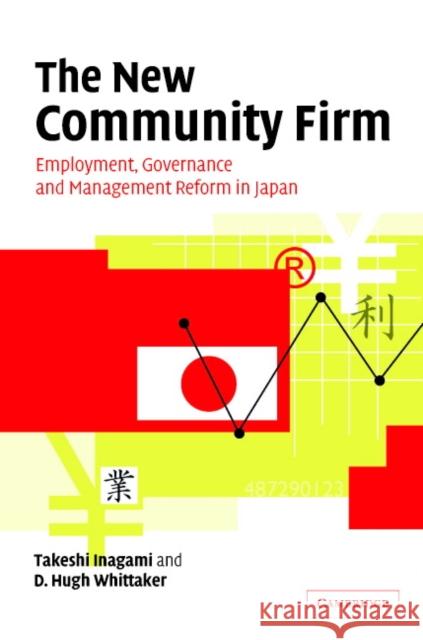The New Community Firm: Employment, Governance and Management Reform in Japan » książka
The New Community Firm: Employment, Governance and Management Reform in Japan
ISBN-13: 9780521843706 / Angielski / Twarda / 2005 / 296 str.
The New Community Firm: Employment, Governance and Management Reform in Japan
ISBN-13: 9780521843706 / Angielski / Twarda / 2005 / 296 str.
(netto: 261,26 VAT: 5%)
Najniższa cena z 30 dni: 272,13
ok. 16-18 dni roboczych.
Darmowa dostawa!
After sweeping all before it in the 1980s, 'Japanese management' ran into trouble in the 1990s, especially in the high-tech industries, prompting many to declare it had outlived its usefulness. From the late 1990s leading companies embarked on wide-ranging reforms designed to restore their entrepreneurial vigour. For some, this spelled the end of Japanese management; for others, little had changed. From the perspective of the community firm, Inagami and Whittaker examine changes to employment practices, corporate governance and management priorities, in this 2005 book, drawing on a rich combination of survey data and an in-depth study of Hitachi, Japan's leading general electric company and enterprise group. They find change and continuity, the emergence of a 'reformed model', but not the demise of the community firm. The model addresses both economic vitality and social fairness, within limits. This book offers unique insights into changes in Japanese management, corporations and society.











